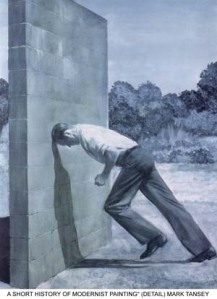 Murdoch has finally spoken. Times Online must be paid for and the millions of eyeballs viewing the pages are still not cutting the mustard with advertisers. A paywall will be erected in June costing £1 a day or £2 a week for online access to both The Times and The Sunday Times Online (which will, from June, have seperate websites.)
Murdoch has finally spoken. Times Online must be paid for and the millions of eyeballs viewing the pages are still not cutting the mustard with advertisers. A paywall will be erected in June costing £1 a day or £2 a week for online access to both The Times and The Sunday Times Online (which will, from June, have seperate websites.)
In a leader this weekend The Sunday Times defended this position, it said:
“At present we are in the absurd position of charging people £2 for our newspaper while simultaneously offering the same content free online. The flawed logic was that Internet advertising would pay for it. The recession has put a stop to that, so giving away expensive journalism is financially unsustainable and ultimately bad for us and our readers.”
Of course this is an issue, fundamentally, of revenue. Revenue to enable these papers to keep funding quality journalism. But there are more important philosophical issues here. It’s about how we, as a society, value the rights of intellectual property.
I have spent years as the annoying person at the dinner table admonishing people for downloading music or streaming TV or film content online without paying for it. The look I get for having never downloaded a song illegally would lead you to believe that it is me who is breaking the law, or at the very the least the status quo.
I know that my blank stare when the conversation turns to bit torrents and tv-link-sites makes me seem old fashioned and out of touch, but the endemic disregard of my peers for the rights of ownership over creative content really grates.
My go-to argument is that the inherent value of a CD from a shop is not the physical packaging but the music that it holds, the same music that can be downloaded illegally online. And,while few of my friends would walk into a shop and steal that CD, even if there was no chance of them being collared by an angry HMV worker, downloading claims no such moral boundaries. There is an anarchic idea that we are some how entitled to this creativity without reaching into our pockets. Just because we want it.
What a sad view of the world we are creating for ourselves. Over the centuries great works of literature, of music, of drama have endured alongside the great creations and inventions and yet their value has diverged sharply in the last decade. We are happy to pay for electricity to power the sparkly new speakers that blast our music but not for the music itself. In the same way newspapers have suffered. We want news, more news than ever, directly beamed to our laptops (which being physical objects we are of course more than happy to pay for) but we have given the reportage of this news a false value.
People claim that if forced to pay for it readers will go else where, which may be true. But is it right? Such arguments demean the intellectual output that newspapers produce. If your favourite band managed to find away to force you to pay for it’s music would you change you taste and switch allegiances? If a prolific author decided to give away their books for free would you stop reading Shakespeare or Austen?
The FT has managed to keep a loyal following firmly behind it’s paywall. But specialised content, like that the FT provides to business leaders is easily quantifiable in terms of value. These people need it to do their job. And so it makes perfect sense for them to pay for it.
The general public need to be re-educated about the value of the intellectual material that they consume but it is the responsibility of the producer not the consumer to re-evaluate the business model and make this choice easy, affrodable and appealing to the punter.
If a paywall by the biggest hitters in newspapers – The Times, The New York Times and news group Axel Springer (publisher of over 150 newspapers and magazines in over 30 countries in Europe) is the beginning of this re-education then more the better.
